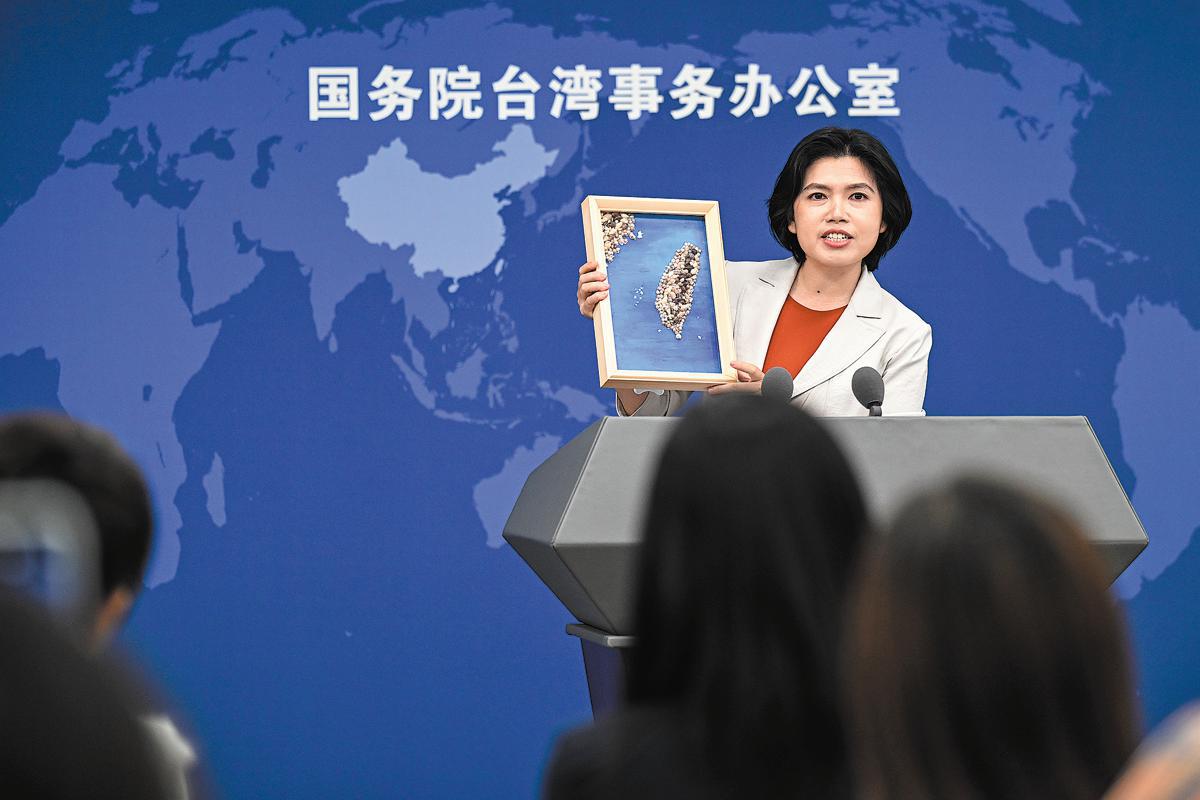Spokeswoman: Ma's mainland visit welcome


Ma Ying-jeou, former leader of Taiwan and former chairman of the Chinese Kuomintang party, will lead a group of students to visit the Chinese mainland from Saturday to June 27 in an effort to promote exchanges amid tense cross-Strait relations.
The delegation will attend the 17th Straits Forum, the largest annual grassroots exchange event between the mainland and Taiwan, which is set to take place this weekend in Fujian province, said Zhu Fenglian, a spokeswoman for the Taiwan Affairs Office of the State Council.
More than 7,000 people from various walks of life in Taiwan are expected to attend the event. Forum participants will include representatives from political parties, labor unions and youth organizations, as well as professionals from various industries and members of religious communities, Zhu said at a news conference in Beijing on Wednesday.
During the two-week visit, the delegation will also participate in a commemorative ceremony in Gansu province to pay tribute to Fu Xi, a legendary ancestor of the Chinese nation. They will join activities to jointly promote Chinese culture across the Taiwan Strait and visit Dunhuang in Gansu for a cross-Strait cultural event highlighting Chinese heritage. Another leg of the trip will explore the Hexi Corridor and experience the ancient Silk Road.
"We welcome the visit and will make proper arrangements and provide necessary convenience," Zhu said.
Zhu noted the importance of cross-Strait exchanges and cooperation amid the complex, grave situation in the Taiwan Strait.
"We always welcome people from all walks of life in Taiwan and the vast number of Taiwan compatriots to visit and conduct exchanges with the mainland, and join hands with the mainland to carry forward fine traditional Chinese culture and contribute to the rejuvenation of the Chinese nation," she said at the news conference.
Hsiao Hsu-tsen, executive director of the island-based Ma Ying-jeou Culture and Education Foundation, said it is important to foster communication and exchanges due to the unprecedented severity of the current cross-Strait situation. He said that Ma is committed to doing everything possible to promote cross-Strait exchanges to convey the heartfelt desire for communication among people.
In recent years, Ma has led Taiwan students on three visits to the mainland and also invited groups of teachers and students from mainland universities to visit Taiwan twice.
Since Lai Ching-te took office last year, cross-Strait relations have been highly tense.
Lai has refused to recognize the "1992 Consensus", which embodies the one-China principle, and he has repeatedly advocated "anti-China and resisting China" narratives and obstructed cross-Strait exchanges.
Xu Xiaoquan, a deputy researcher at the Chinese Academy of Social Sciences' Institute of Taiwan Studies, said the Democratic Progressive Party authorities in Taiwan are afraid that Taiwan people will participate in the forum because such activities can directly expose their lies about the mainland and obstruct cross-Strait reunification.
The annual forum, held since 2009, has attracted thousands of compatriots from the island, sparking a wave of people-to-people exchanges between the two sides of the Strait, Xu said.
The DPP authorities are clearly afraid of the positive effects these exchanges can bring to cross-Strait relations, he said, adding, "They fear that Taiwan compatriots will see the real mainland, people will get closer, and Taiwan people will increasingly identify with Chinese culture."
Meanwhile, Zhu said at the news conference that the Chinese mainland will intensify its crackdown on cyberattacks carried out by an organization of Taiwan's DPP.
She made the remarks in response to a question about a wanted list released in early June.
The wanted list, issued by police in Guangzhou, Guangdong province, names 20 suspects accused of participating in cyberattacks launched by Taiwan's "Information, Communications and Electronic Force Command".
Zhu said that recent law enforcement actions by mainland public security agencies represent a firm response to "Taiwan independence" separatist forces and specifically target the illicit activities of ICEFCOM.
The evidence of DPP authorities orchestrating frequent and indiscriminate cyberattacks against mainland network infrastructure through ICEFCOM is "clear and conclusive", Zhu said.
The spokeswoman added that the mainland will never tolerate any individuals profiting from the mainland while supporting "Taiwan independence".
Zhu was responding to recent remarks from Taiwan's die-hard separatist Shen Pao-yang about punitive measures taken by the mainland against companies linked to him.
Xinhua contributed to this story.
zhangyi1@chinadaily.com.cn
- Tongji University's Wu Jiang assumes presidency of architects' Asia council
- PLA carries out drone training operations near Dongsha Islands
- PLA monitors US naval vessels transiting the Taiwan Strait
- Losar warmth in a new home
- New carrier rocket built by Beijing company fails in maiden flight
- Toxic gas leak in Anhui classified as major work safety liability accident




































